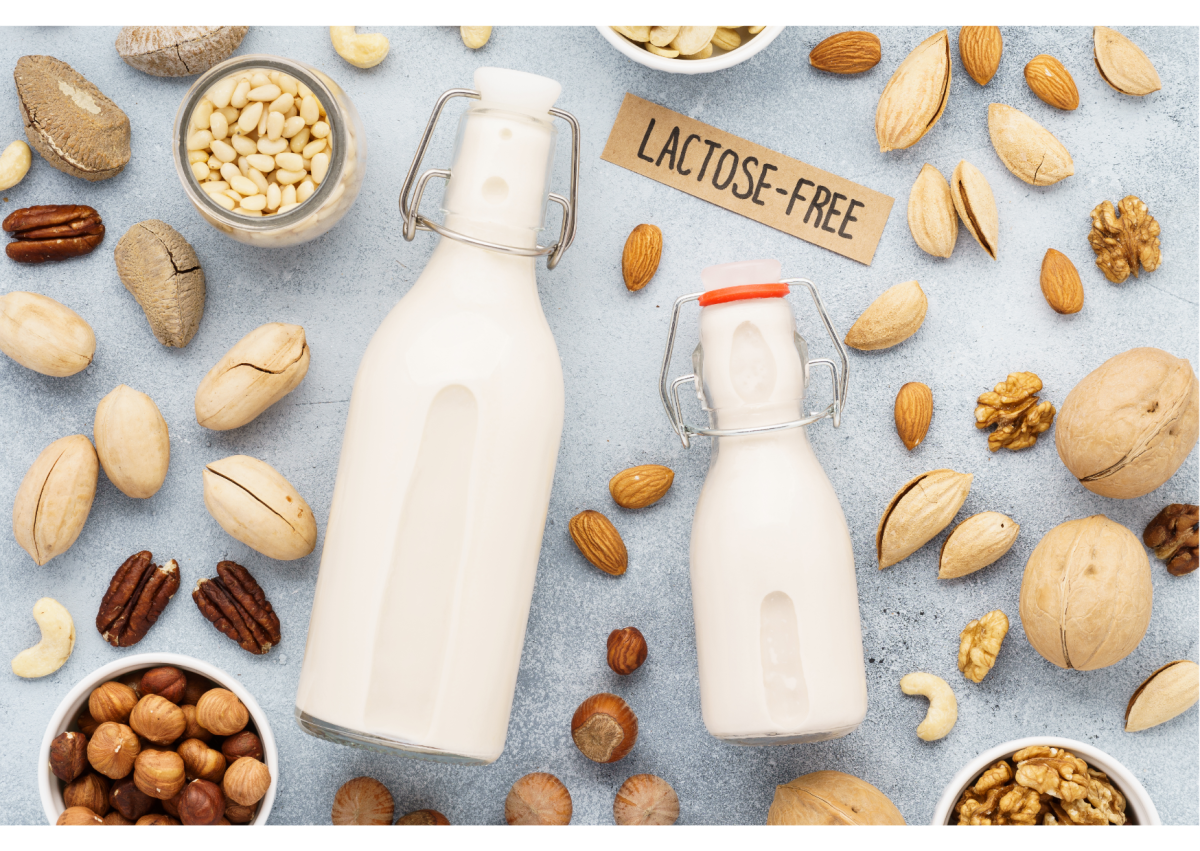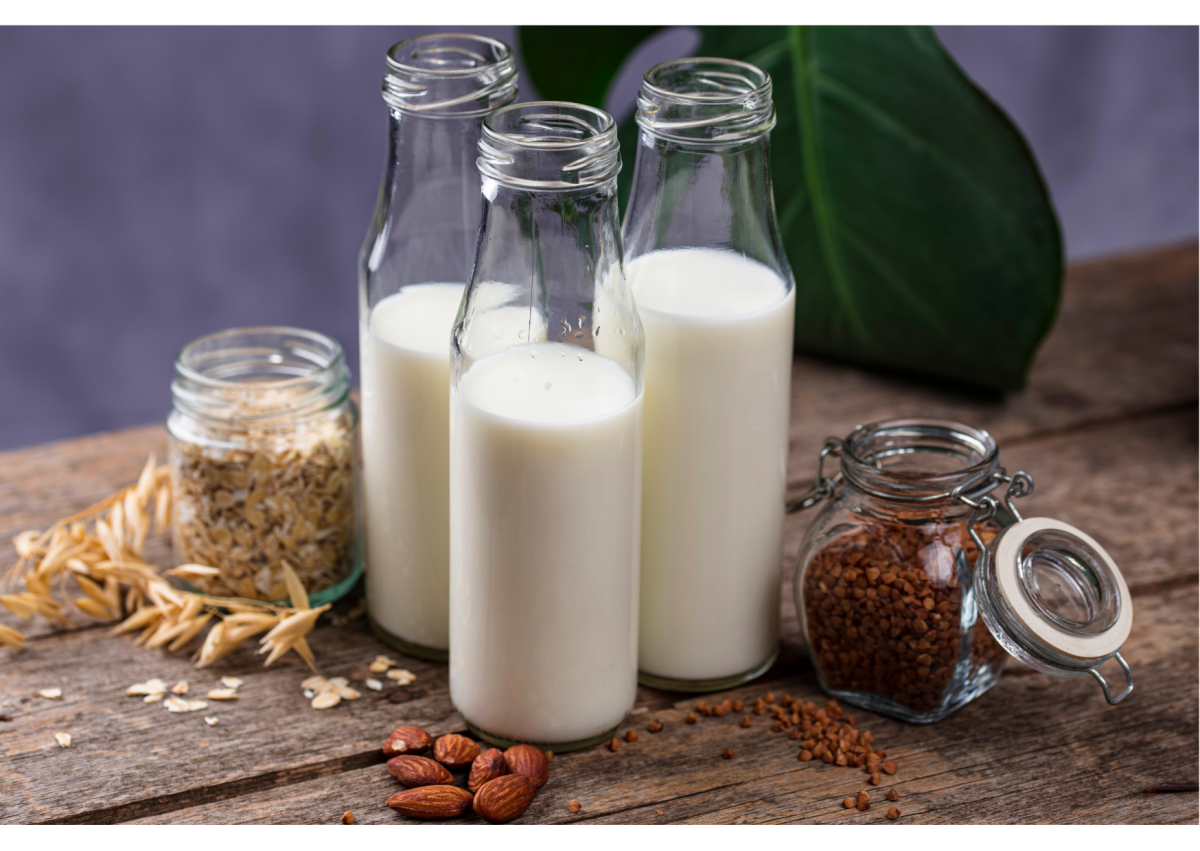The 10 best lactose-free milk options according to a dietitian
- Dietary Advice (non Low FODMAP)
What is the best lactose-free milk, and why? Read the article, where we explain our choice and also debate if lactose-free milk is healthier than regular milk.
We will also discuss whether lactose-free milk is 100% free of lactose.
The choice of lactose-free milk is yours according to your taste and nutritional preferences. However, to help you choose the best, we will list ten brands that provide suitable options.

Which lactose-free milk is the best?
The best lactose-free milk can vary depending on personal preferences, such as taste preferences and whether you follow a vegan diet.
However, from a nutritional point of view, the most nutritious is cow’s lactose-free milk.
Just 100 ml provides (1):
- 3g of protein
- 123mg of calcium (18% of daily needs)
- 101mg of phosphorus (18% of daily needs)
- 0.138mg of vitamin B2 (13% of daily needs)
- 0.54μg of vitamin B12 (36% of daily needs)
Cow’s milk is also a source of iodine. 100ml, on average, contains 43 μg, which is 31% of daily needs. The iodine content in milk can vary due to different farming practices and seasons (2, 3).
A meta-analysis from 2022 found that consuming 200g of cow’s milk dairy was associated with a lower risk of being overweight, obesity, and hypertension (4).
You can get similar nutrients from fortified soy milk alternatives if you do not consume dairy.
However, soy milk alternatives typically derive from high FODMAP soybeans, potentially inducing symptoms in individuals with IBS (5).
If you have IBS, you may want to look for other low FODMAP milk options, such as rice or almond milk alternatives.
Choose fortified products with vitamin B12, calcium, and iodine because they ensure a well-rounded and nutritionally balanced diet.
Fortification enhances the nutritional content of foods, addressing potential gaps in essential micronutrients that may be lacking in certain dietary choices.
The specific nutrients fortified in plant-based milk alternatives can vary between brands and products.
Is lactose-free milk healthier than regular milk?
Lactose-free milk is a better option for people with lactose intolerance who have problems digesting lactose, which is the sugar in regular milk.
To learn more about lactose intolerance, read our article: Understanding lactose intolerance: symptoms, diagnosis, and management strategies.
Cow’s lactose-free milk differs from regular milk only in lactose content.
There is no health advantage of choosing lactose-free milk over regular milk for those who are not lactose intolerant.
Is lactose-free milk 100% lactose-free?
No, cow’s lactose-free milk is not entirely devoid of lactose, but it has significantly reduced levels compared to regular milk (<0.1g per 100ml).
While lactose-free milk is not 100% lactose-free, it often contains a minimal amount of lactose, which is well-tolerated by people with lactose intolerance.
The exact lactose content can vary among different brands and types of lactose-free milk.
On the other hand, plant-based milk alternatives are naturally lactose-free.

Lactose-free milk brands
Several lactose-free milk brands are available, but these brands’ availability may vary by region.
Check with local grocery stores to find the lactose-free milk brands accessible in your area.
Cow’s lactose-free milk brands:
Plant-based milk alternatives brands:
- Silk® (not fortified with iodine)
- Alpro
- Asda
- Eden Organic (not fortified with iodine)
- Planet Oat (not fortified with iodine)
Summary
The most nutritious lactose-free milk is cow’s lactose-free milk, which is a source of protein, calcium, phosphorus, iodine, and vitamins B2 and B12.
However, if you do not consume dairy, choose fortified plant-based alternatives, like soy drinks, as they are also a source of protein.
When buying plant-based milk alternatives, check the label and choose products fortified with calcium, iodine, and vitamin B12 to avoid nutritional deficiencies.
Written by Barbara Lešnik, Student Dietitian, reviewed by Kirsten Jackson, Consultant Dietitian BSc Hons, RD, PG Cert